
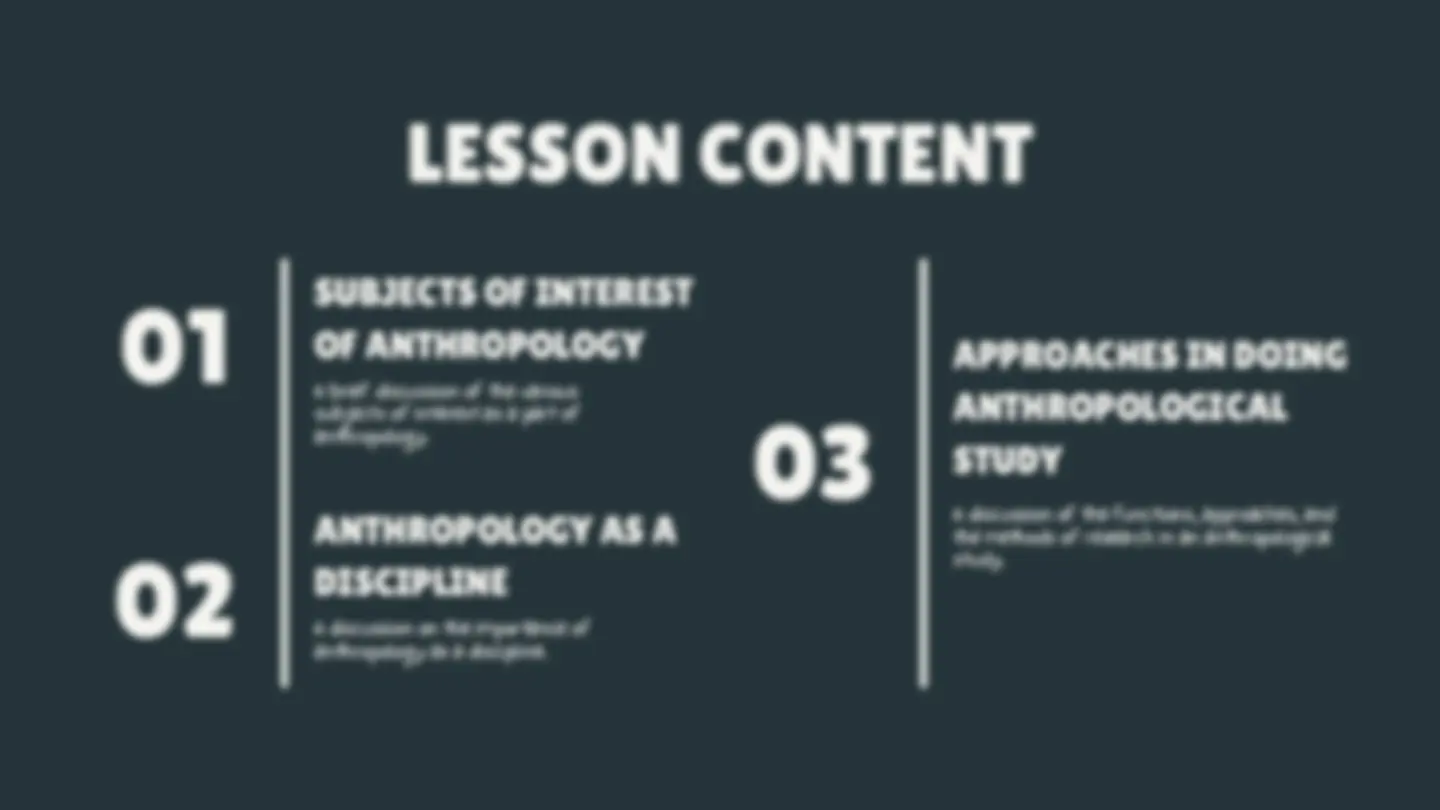
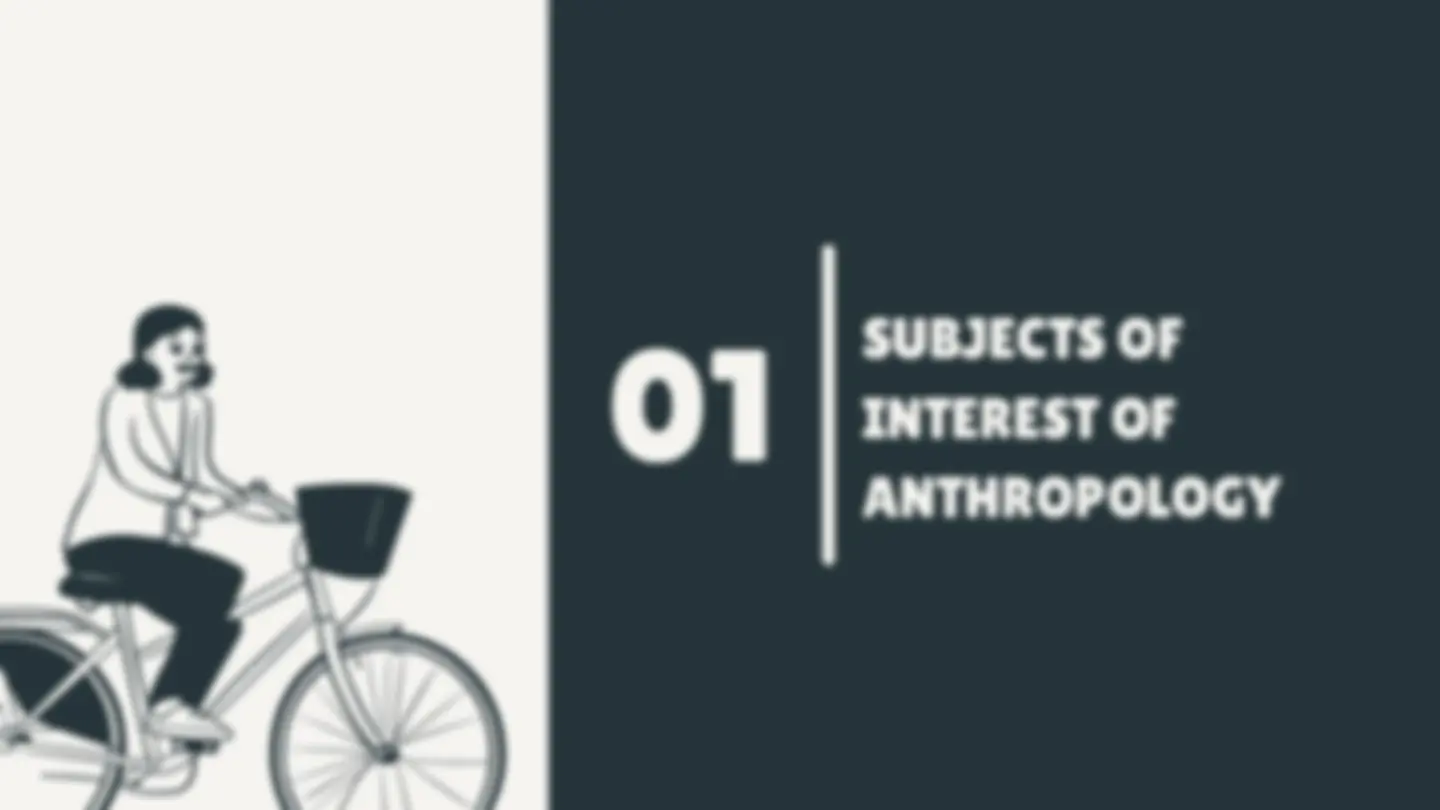
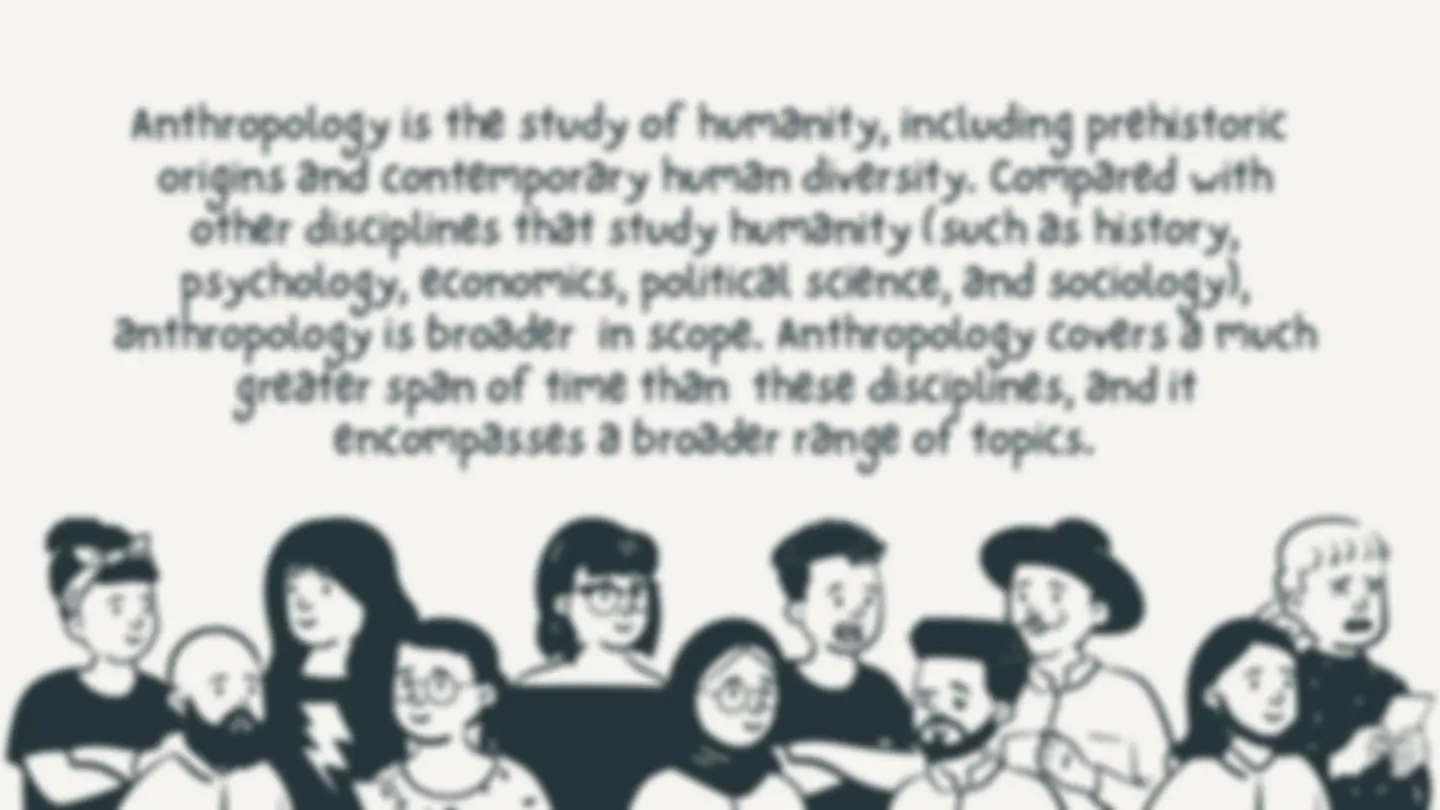
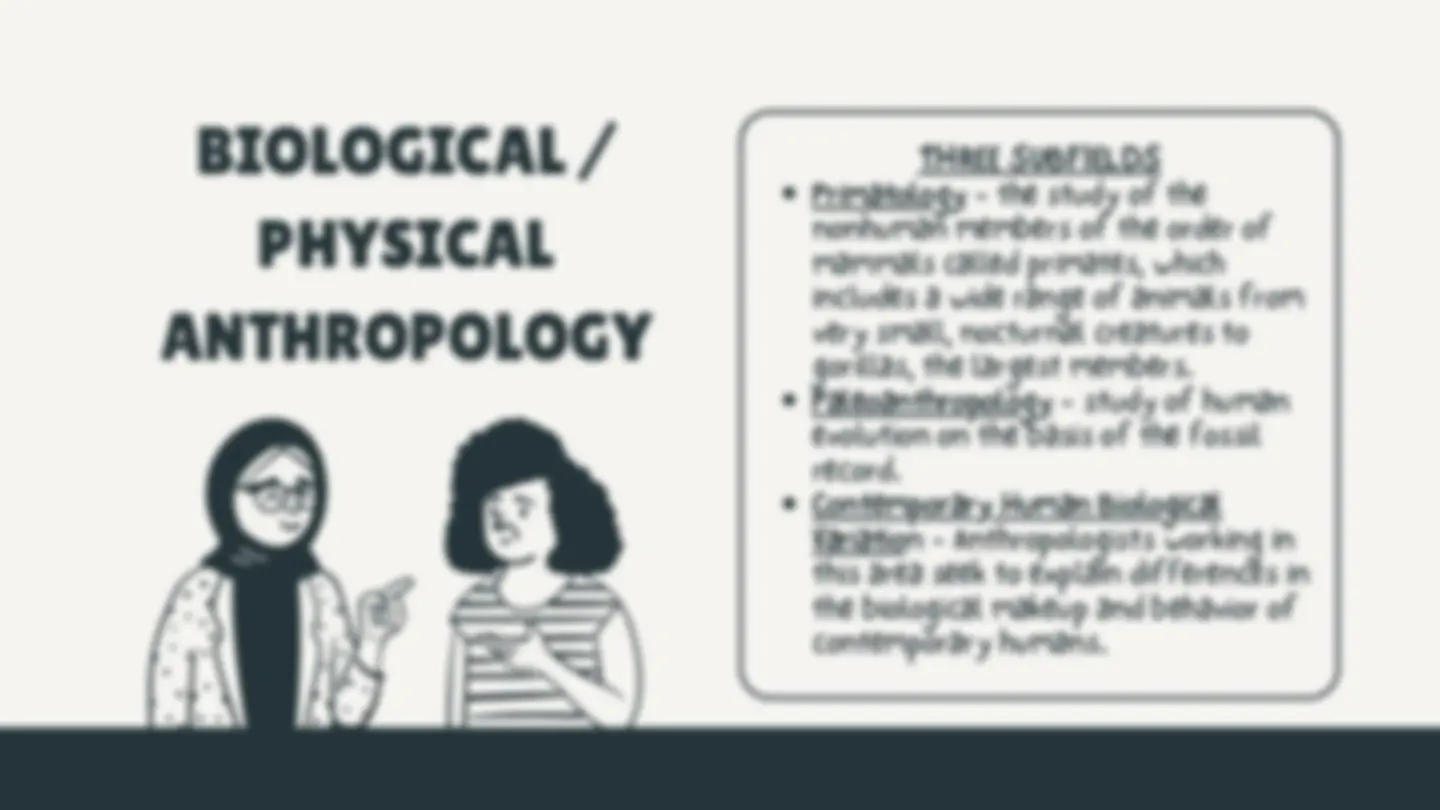
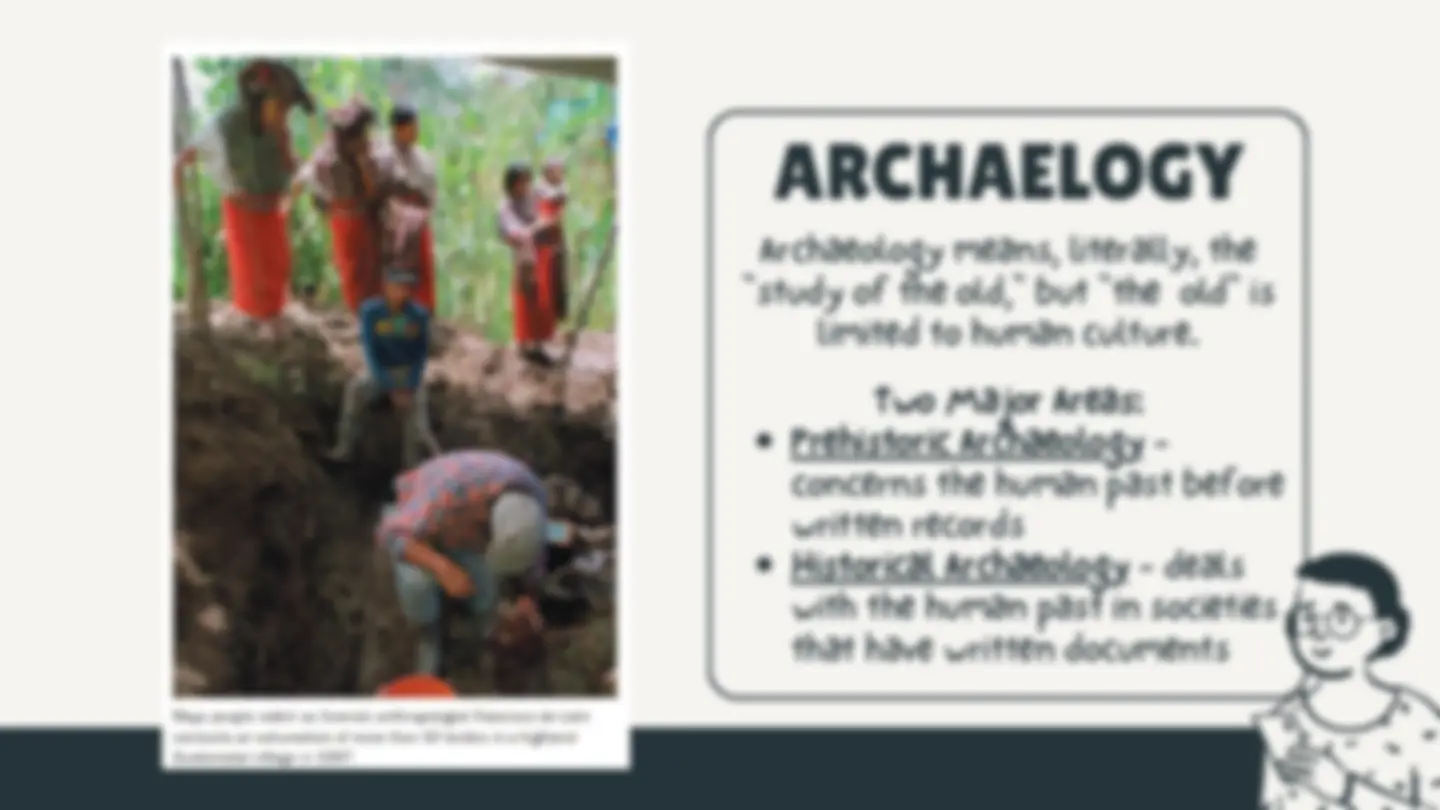

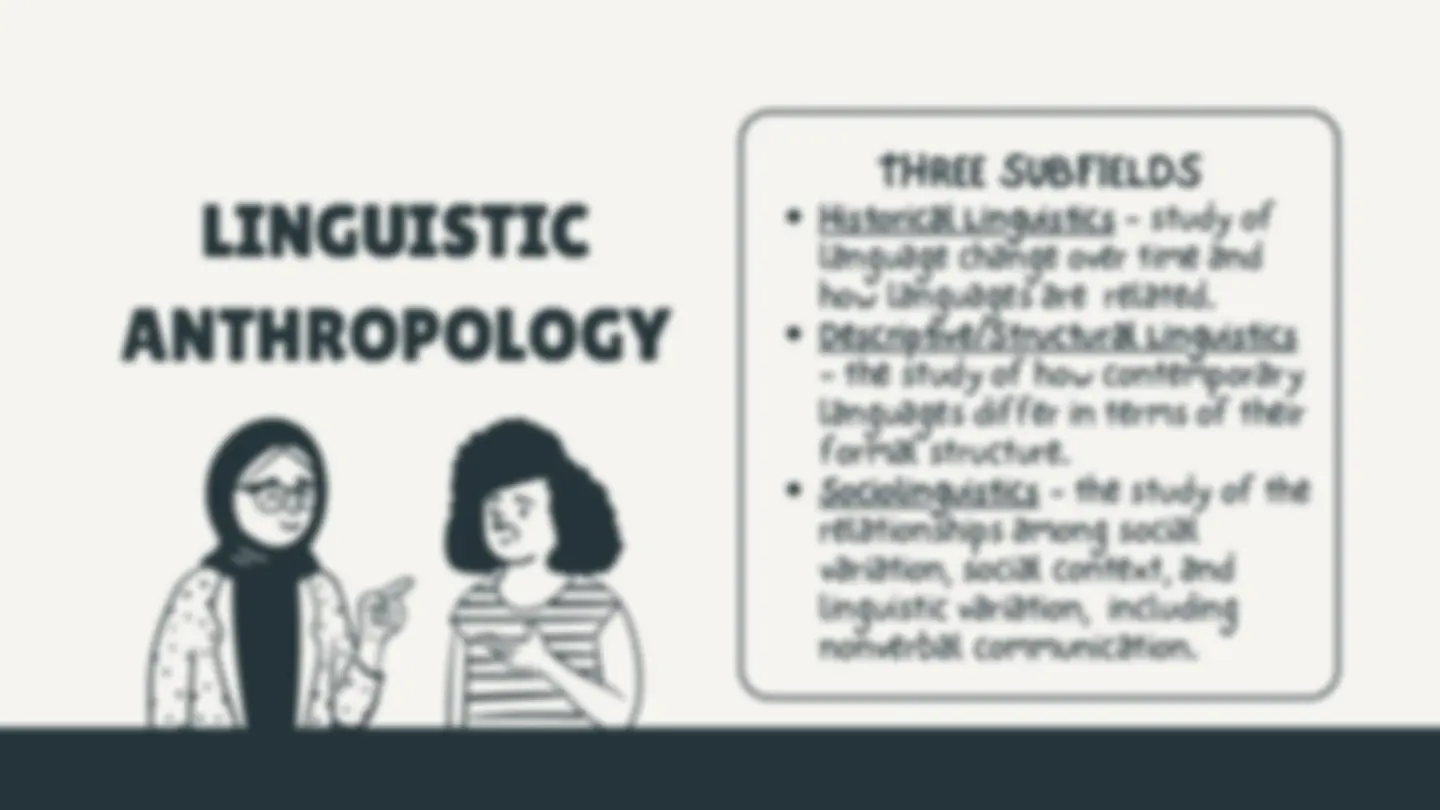
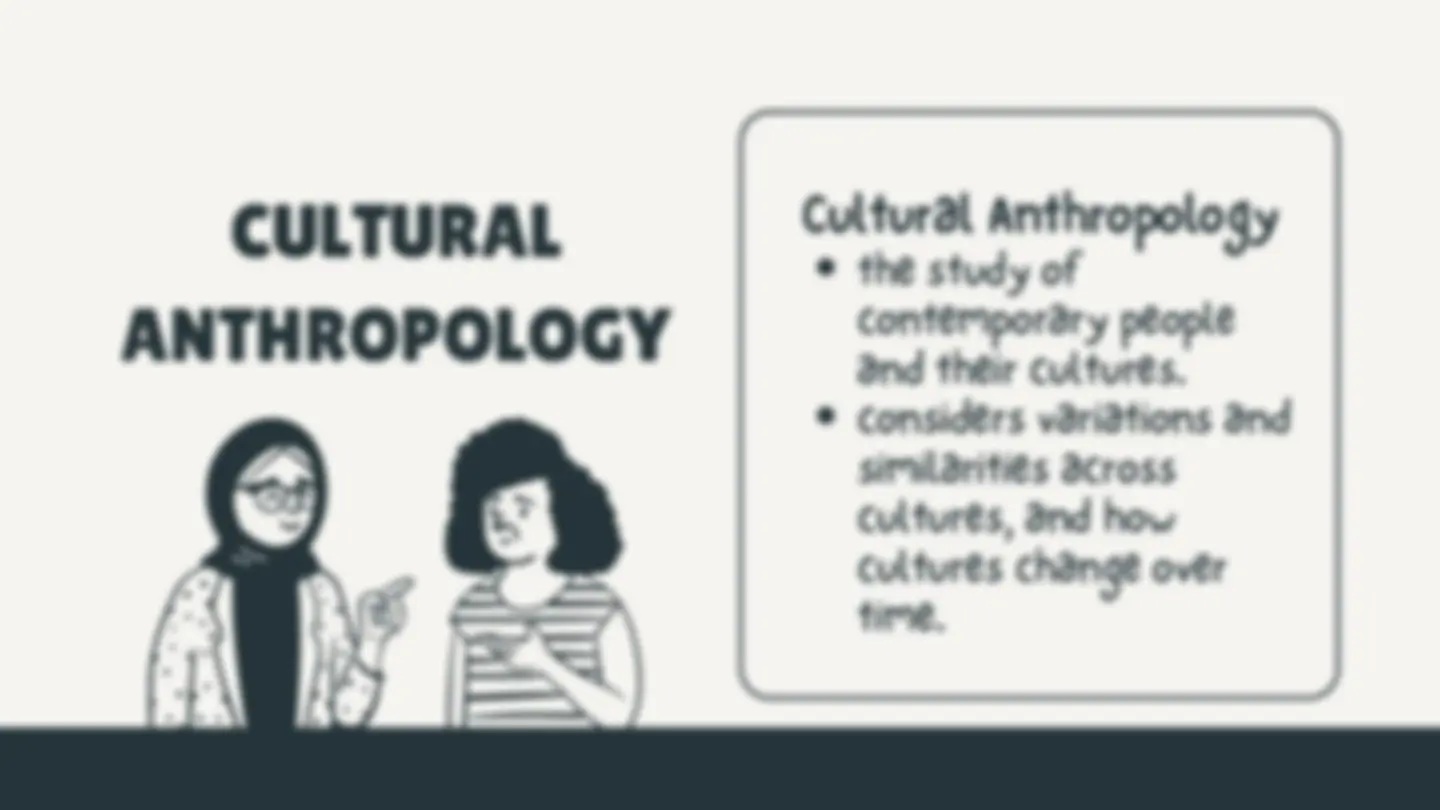
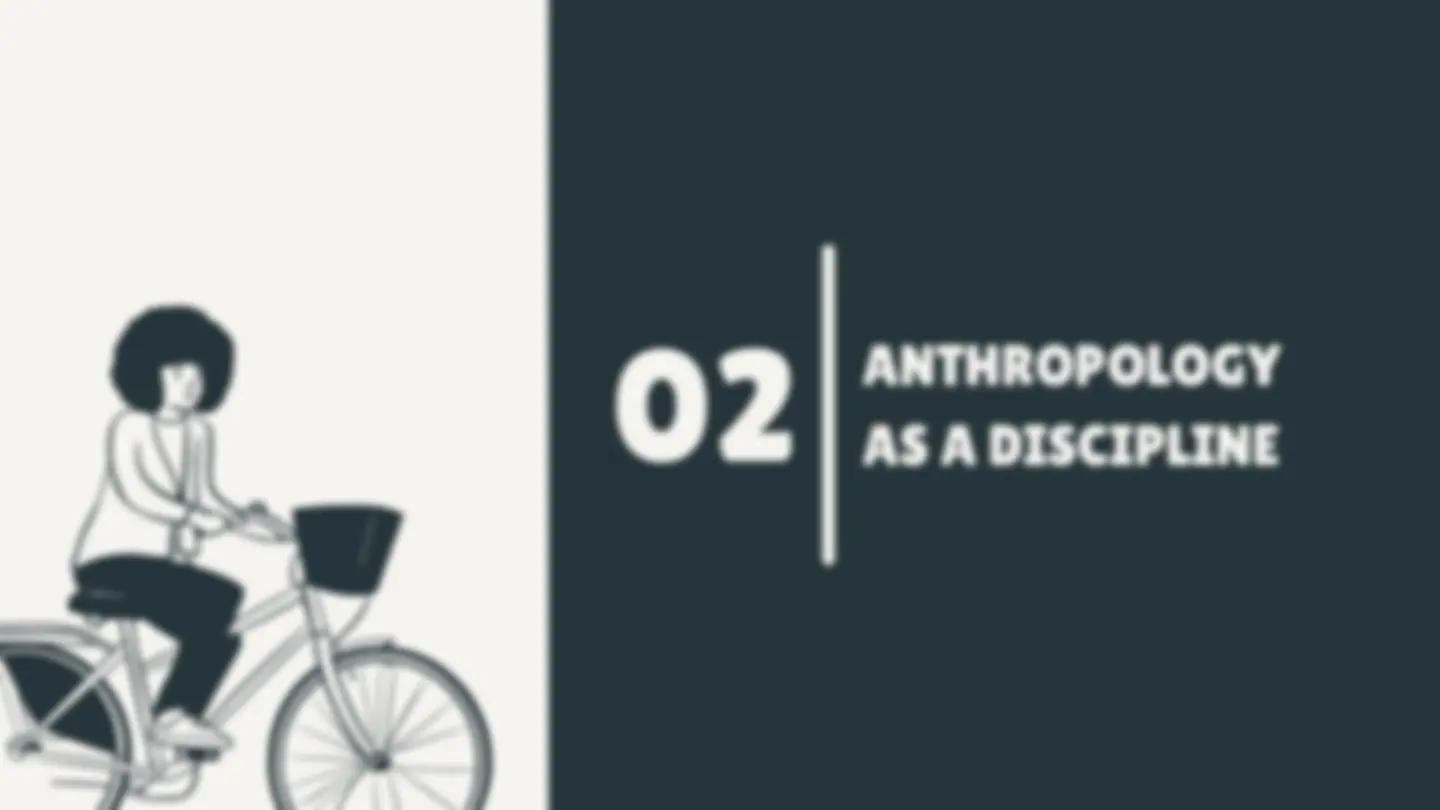
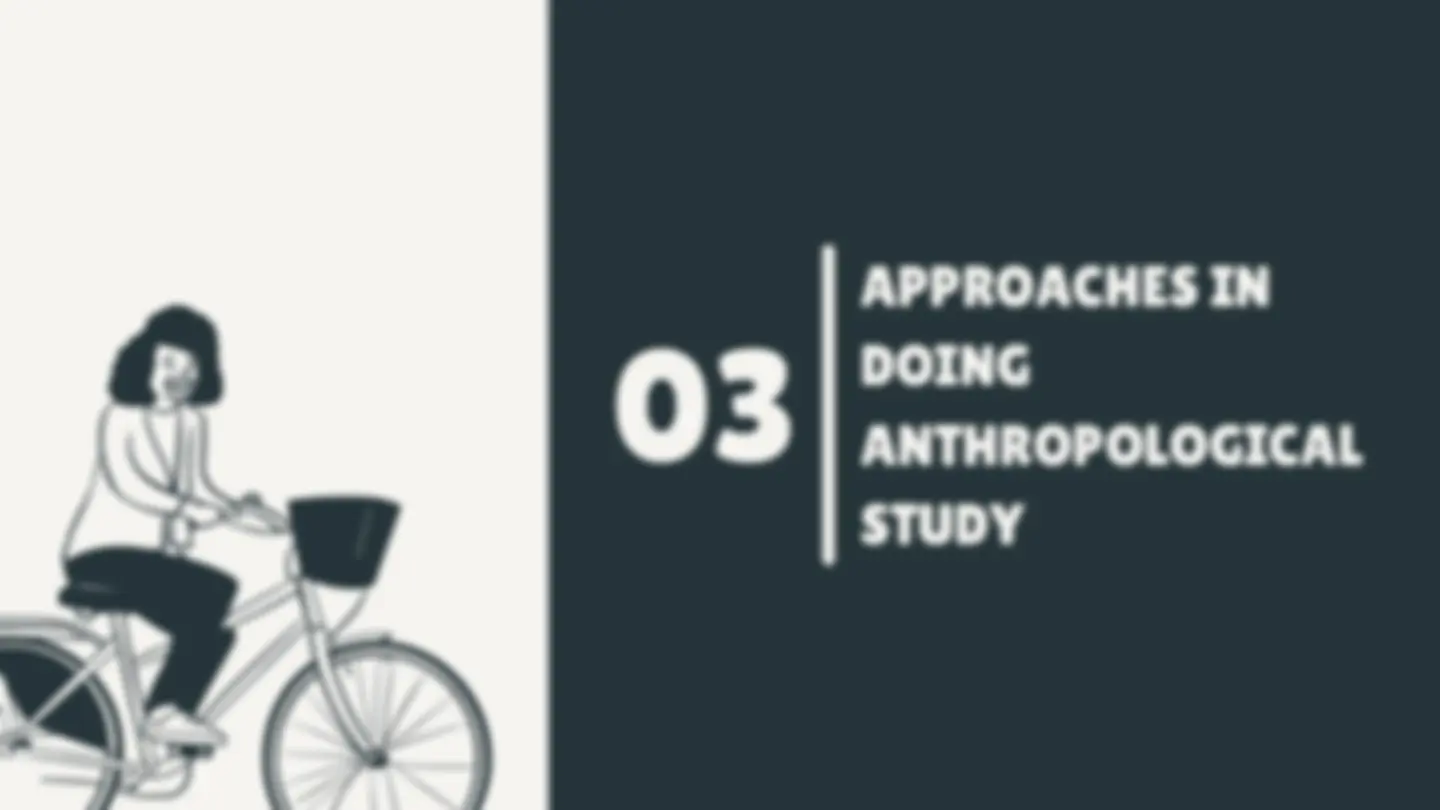
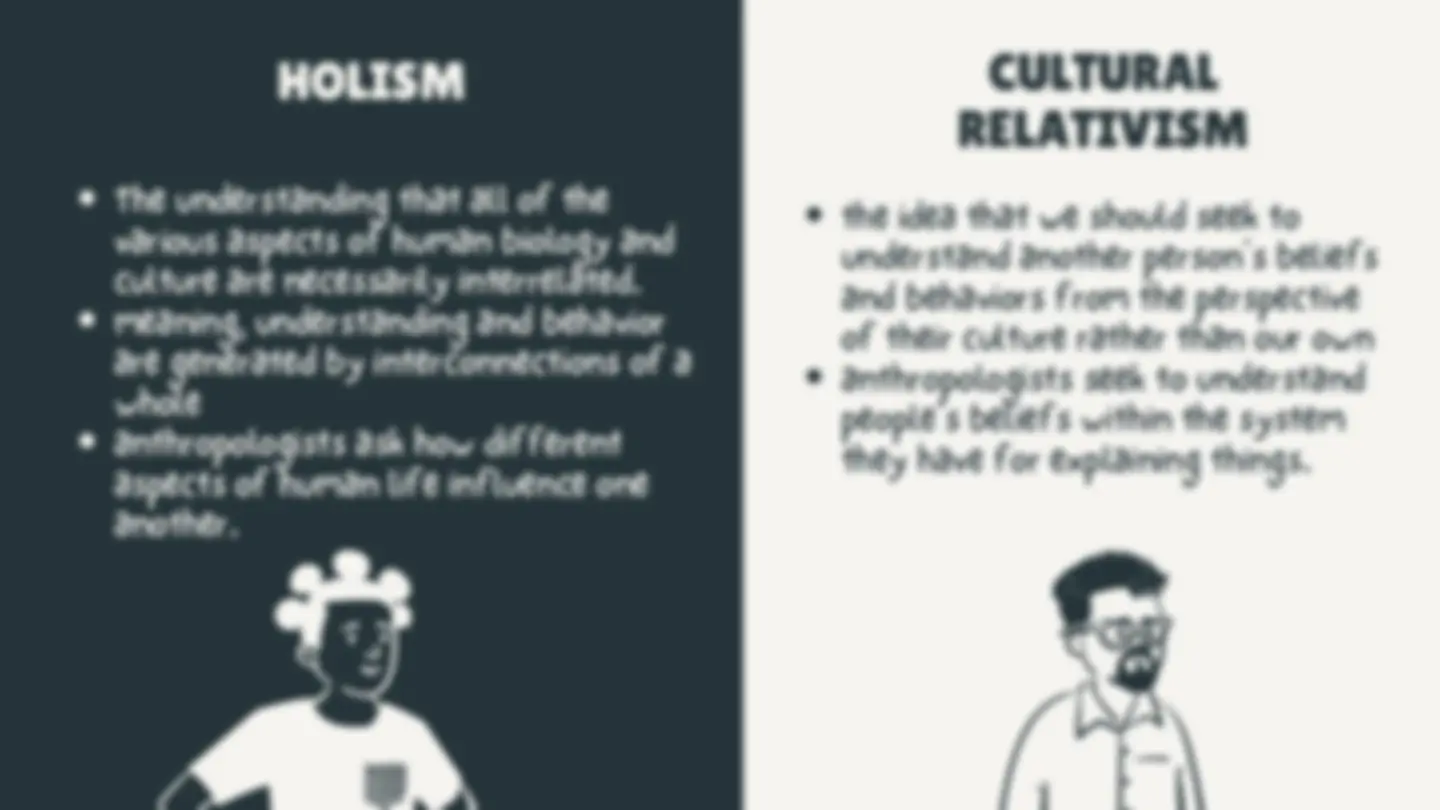
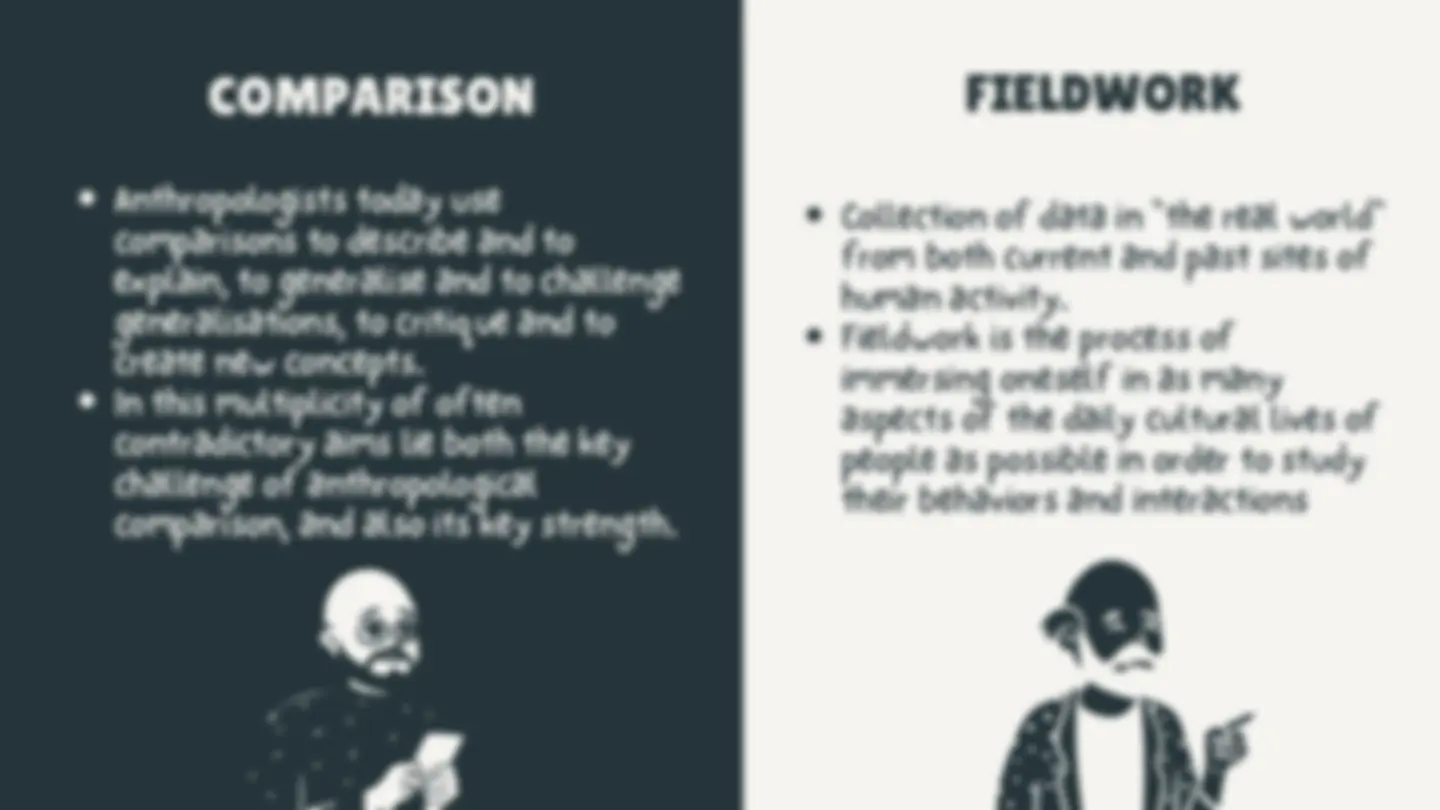


Study with the several resources on Docsity

Earn points by helping other students or get them with a premium plan


Prepare for your exams
Study with the several resources on Docsity

Earn points to download
Earn points by helping other students or get them with a premium plan
Community
Ask the community for help and clear up your study doubts
Discover the best universities in your country according to Docsity users
Free resources
Download our free guides on studying techniques, anxiety management strategies, and thesis advice from Docsity tutors
An introduction to anthropology, a holistic discipline that explores the entire human experience from biological origins to contemporary cultures. It covers the four fields of anthropology - archaeology, biological, linguistic, and sociocultural - and their subfields. Learn about the importance of anthropology, its interdisciplinary nature, and the approaches used in anthropological research.
What you will learn
Typology: Lecture notes
1 / 20

This page cannot be seen from the preview
Don't miss anything!













Come, Holy Spirit, Divine Creator, true source of light and fountain of wisdom! Pour forth your brilliance upon my dense intellect, dissipate the darkness which covers me, that of sin and of ignorance. Grant me a penetrating mind to understand, a retentive memory, method and ease in learning, the lucidity to comprehend, and abundant grace in expressing myself. Guide the beginning of my work, direct its progress, and bring it to successful completion. Please bless all the people from this calamity. Keep them safe and warm in their homes. may the typhoon stop from destroying all of your creations - people, places, and the environment. This I ask through Jesus Christ, true God and true man, living and reigning with You and the Father, forever and ever. Amen.
Socio-Cultural Anthropology
SUBJECTS OF INTEREST OF ANTHROPOLOGY
Anthropology is the study of humanity, including prehistoric origins and contemporary human diversity. Compared with other disciplines that study humanity (such as history, psychology, economics, political science, and sociology), anthropology is broader in scope. Anthropology covers a much greater span of time than these disciplines, and it encompasses a broader range of topics.
the study of humans as biological organisms, including evolution and contemporary variation. BIOLOGICAL ANTHROPOLOGY OR PHYSICAL ANTHROPOLOGY the study of past human cultures through their material remains. ARCHAELOGY the study of human communication, including its origins, history, and contemporary variation and change. LINGUISTIC ANTHROPOLOGY the study of living peoples and their cultures, including variation and change. Culture refers to people’s learned and shared behaviors and beliefs. CULTURAL ANTHROPOLOGY ANTHROPOLOGY'S FOUR FIELDS
Primatology - the study of the nonhuman members of the order of mammals called primates, which includes a wide range of animals from very small, nocturnal creatures to gorillas, the largest members. Paleoanthropology - study of human evolution on the basis of the fossil record. Contemporary Human Biological Variatio n - Anthropologists working in this area seek to explain differences in the biological makeup and behavior of contemporary humans. THREE SUBFIELDS
ARCHAELOGY Underwater Archaeology
LINGUISTIC ANTHROPOLOGY Historical Linguistics - study of language change over time and how languages are related. Descriptive/Structural Linguistics
CULTURAL ANTHROPOLOGY the study of contemporary people and their cultures. considers variations and similarities across cultures, and how cultures change over time. Cultural Anthropology
ANTHROPOLOGY AS A DISCIPLINE Anthropology is the study of humankind. Of all the disciplines that examine aspects of human existence and accomplishments, only Anthropology explores the entire panorama of the human experience from human origins to contemporary forms of culture and social life.
ANTHROPOLOGY AS A DISCIPLINE With its holistic perspective, Anthropology intersects the multiple approaches to the study of humankind– biological, social, cultural, historical, linguistic, cognitive, material, technological, affective, and aesthetic. This interdisciplinarity is integrated within Anthropology as a whole and formalized in the four major fields that compose the discipline–archaeological, biological, linguistic, and sociocultural anthropology–although many anthropologists also conduct research across these fields.
HOLISM CULTURAL RELATIVISM The understanding that all of the various aspects of human biology and culture are necessarily interrelated. meaning, understanding and behavior are generated by interconnections of a whole anthropologists ask how different aspects of human life influence one another. the idea that we should seek to understand another person’s beliefs and behaviors from the perspective of their culture rather than our own anthropologists seek to understand people’s beliefs within the system they have for explaining things.
COMPARISON FIELDWORK Anthropologists today use comparisons to describe and to explain, to generalise and to challenge generalisations, to critique and to create new concepts. In this multiplicity of often contradictory aims lie both the key challenge of anthropological comparison, and also its key strength. Collection of data in “the real world” from both current and past sites of human activity. Fieldwork is the process of immersing oneself in as many aspects of the daily cultural lives of people as possible in order to study their behaviors and interactions